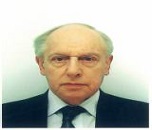Day 2 :
Keynote Forum
Lionel Fry
Imperial College London, UK
Keynote: Microbiome in psoriasis
Time : 10:20-11:00

Biography:
Lionel Fry has studied Medicine at King's College Hospital Medical School. He has entered dermatology in 1963 after house jobs and a Medical Registrar's post at King's. He was trained first at St John's, then St Thomas' and finally The London Hospital. Whilst at London he was awarded two MRC grants: One to study psoriasis and the other to study dermatitis herpetiformis. In 1969 he was appointed as Consultant Dermatologist at St Mary's Hospital in London. In 1997, he became a Professor of Dermatology at Imperial College, London. He is continuing his work on the role of microorganisms in psoriasis with colleagues at The Karolinska Institute in Stockholm. His research interests have focused on dermatitis herpetiformis and psoriasis and he is currently investigating the microbiome of psoriasis.rn
Abstract:
The investigation of the microbiome in psoriasis has raised the possibility that psoriasis is triggered by the bacteria in the skin in individuals with the genetic abnormalities. The microbiome has been investigated two methods, swabs and biopsies. In swabs in normal skin the commonest phylum is Actinobacteria and in psoriasis it is Firmicutes. In biopsies the commonest phylum is Firmicutes in both normal skin and psoriasis. At the genus level in swabs the commonest is Propionibacterium and in psoriasis Corynebacterium. In biopsies it is Streptococcus in both normal skin and psoriasis. The ratio of Streptococcus to Propionibacterium is raised in psoriasis compared to normal skin. Bacteria in the skin may have several actions: They can affect the innate immune system, affect T-cell function and may regulate the development of the immune system. Bacteria in the skin may be of primary etiological significance.
Keynote Forum
Evgeniya Ranneva
Skin Tech Pharma Group, Spain
Keynote: Clinical study to evaluate the efficacy of a combined treatment with medical devices CE class III in different baldness patterns
Time : 09:40-10:20

Biography:
Evgeniya Ranneva is presently working as a Dermatologist and Specialist in Rehabilitative and Reconstructive Medicine. She has completed her PhD in Aesthetic Medicine in 2003. She is an experienced Trainer of chemical peelings, International Trainer of fillers and botulinum toxin injection. She is the Founder of first public training course “New method: Mesotherapy”, “Homeomesotherapy in aesthetic medicine” (Russia). She is the Scientific Coordinator of educational project for “International Plastic-Aesthetic Residence” (Spain, Belgium and Italy). She is working as a Medical Advisor for Aesthetic Dermal SL and Project Head for “RRS-Inject” (Spain). Her main research focuses on dermatology, cosmetic dermatology and aesthetic medicine.
Abstract:
Hair loss becomes one of the most frequent problems of both genders, which motivates the patients to visit the dermatologist. Male and female baldness patterns have statistical, clinical and diagnostic differences. Medical device CE Class III, transdermal solution and cosmetic spray are capillary regenerators which revitalize and strengthen capillary fibre via a greater contribution of essential nutrients for capillary growth and a stimulating action of hair growth factors. A multi-center, open label, non-comparative pilot study was performed in 47 patients (32 women and 15 men) who had medical visit due to hair loss. The average age of the patients was 34 years and the evolution period of the alopecia condition was 5 years. Efficacy was determined at the 3rd and 6th months. The best efficacy was observed in case of symptomatic hair loss in the female pattern after pregnancy, nursing period, stress, starvation. In the male pattern which is related to the androgenic alopecia, the result gives satisfaction but further investigation will be necessary. The patient with androgenic alopecia received 12 treatments, once every two weeks. 60% of the patients were satisfied with result of the treatment after 12 weeks. Mesotherapy injections or micro needling combined with cosmetic spray induce the activation of the hair follicle which promotes en enlargement of the anagen phase and a shortening of the telogen phase, reversing the miniaturization of the hair follicles besides stop hair loss and promote new hair growth.
